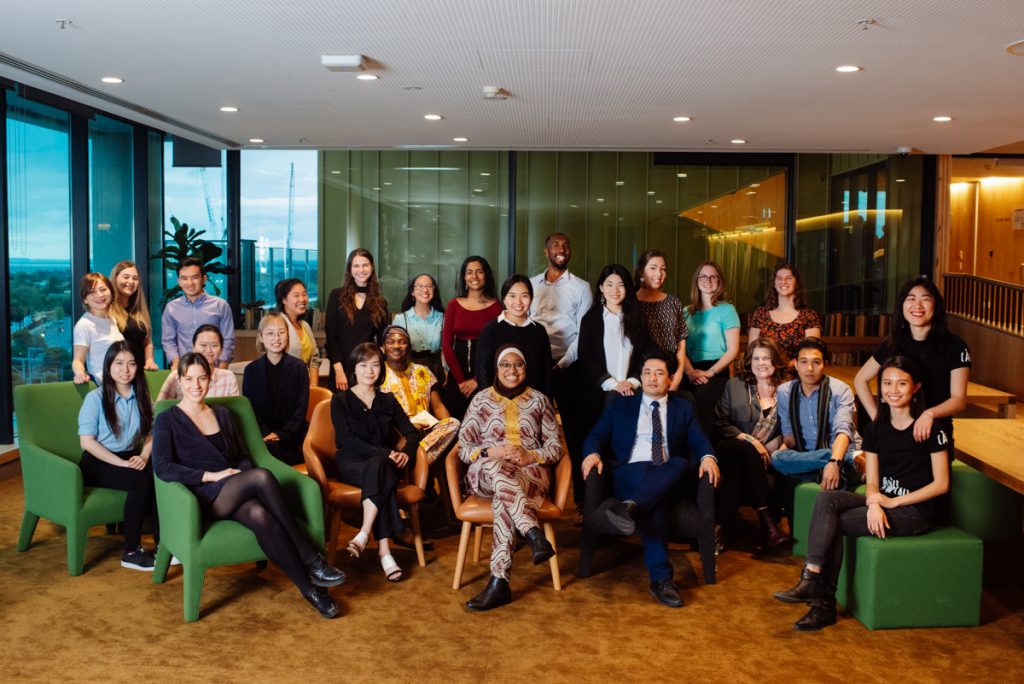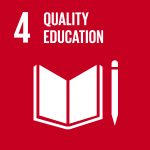Esta web utiliza cookies para que podamos ofrecerte la mejor experiencia de usuario posible. La información de las cookies se almacena en tu navegador y realiza funciones tales como reconocerte cuando vuelves a nuestra web o ayudar a nuestro equipo a comprender qué secciones de la web encuentras más interesantes y útiles.
Leave No One Behind
Description
Institution
Organizations/areas of the university involved
Country
Australia
Leave No One Behind is a program designed to support students to develop a social business idea that addresses a social inclusion challenge in the local community. It is particularly focused on students from the Humanities and Social Science disciplines (including education, business, law, arts, design, architecture) and provides an opportunity for students to harness the skills from their degrees, develop foundational entrepreneurship skills, and orient that towards solving entrenched social disadvantage challenges. The program aims to build student literacy in the SDGs and support the development of entrepreneurship skills as a means of developing local SDG solutions.
Leave No One Behind is particularly focused on issues of social inclusion, equity and disadvantage. We introduce the SDG framework early in the program to provide a common lens for exploring social challenges and to support students to think broadly about the causes, consequences and complexity of their chosen social issue. Leave No One Behind is focused on solving challenges in our local community. However, by using the SDGs as an underlying framework, we are able to connect this to a broader, global movement. That is, many of the problems experienced in Melbourne, Australia are similar to problems experienced around the world. Using the SDG framework helps the students see links globally, while also appreciating the unique, local manifestations of their chosen issue.
The Leave No One Behind program has been designed and delivered in consultation with the Deans of the sponsoring faculties. It reflects a broader University commitment to the SDGs and interest in supporting our students to be active participants in developing innovative SDG solutions.
Results and impact measured or expected
The opportunity for students to develop social business solutions to social inclusion challenges that they are directly or indirectly affected by, or otherwise passionate about, has proved popular. The program is relatively new for Monash, but has reached significant numbers of students who are all passionate about delivering positive social change.
Leave No One Behind is building the skills, behaviours and mindsets needed for entrepreneurship and social impact. The program has also produced a range of solutions relevant to a number of SDGs. Some examples include:
• An online platform that takes people with needs on private and bespoke outings by connecting them with local assistants
• An app that supports students from refugee backgrounds to find career-enhancing work with leading employers in their field
• Repurposing used coffee grounds into a soap scrub, with profits going to existing service providers supporting young people experiencing homelessness
Connection with the SDG framework
Our pedagogy draws on principles of Education for Sustainable Development (ESD), as recognised by SDG 4, that promotes transformative learning for sustainable development and we strongly align with SDG 17 as partnerships are integral to our delivery of the program.
The SDG framework is used in a number of ways throughout the program. As a starting point, the SDGs are used to help students think broadly about the types of social challenges they would like to address. At this ideation phase, students choose a particular SDG they would like to focus on, and then delve deeper to brainstorm a range of more specific social challenges in this space. For instance, a focus on SDG4 could yield a list of more specific issues including:
• Access to quality education in rural areas;
• Enhancing the number of girls learning STEM; or
• Additional teaching and learning support for children with special needs.
The SDGs are then further used to facilitate systems thinking, supporting students to explore the interactions between their focal issue and other SDGs. By understanding the interlinkages across the SDGs, and how these interlinkages play out in a local context, students are able to design more holistic solutions. At the final pitch event, students must present their social business idea and the connections with the relevant SDGs.
Barriers and follow up
We are keen to develop new approaches for engaging students on the SDGs and to assist systems thinking. In particular, we are interested in developing new methodologies for using the SDG framework in an exploratory way to understand the complexity of social inclusion challenges.
We are also interested in designing new activities or processes that support students to identify and deeply understand the interlinkages across the SDG framework. This involves ways for students to link their projects to SDG targets.
We are continuing to work on refining and scaling Leave No One Behind at Monash and beyond. Our next steps are to explore options to better evaluate the impact of the program on students and develop more specialised programs to support the scaling of ideas with demonstrated traction.
Education 4 SDG funciona gracias a WordPress


